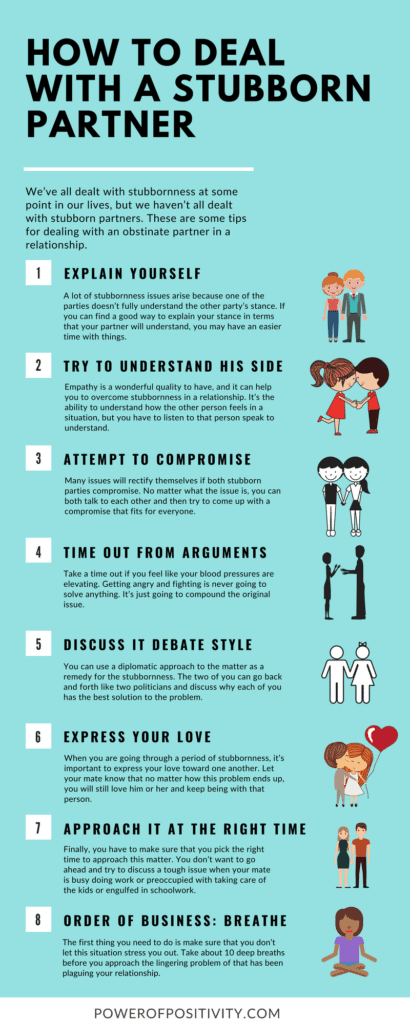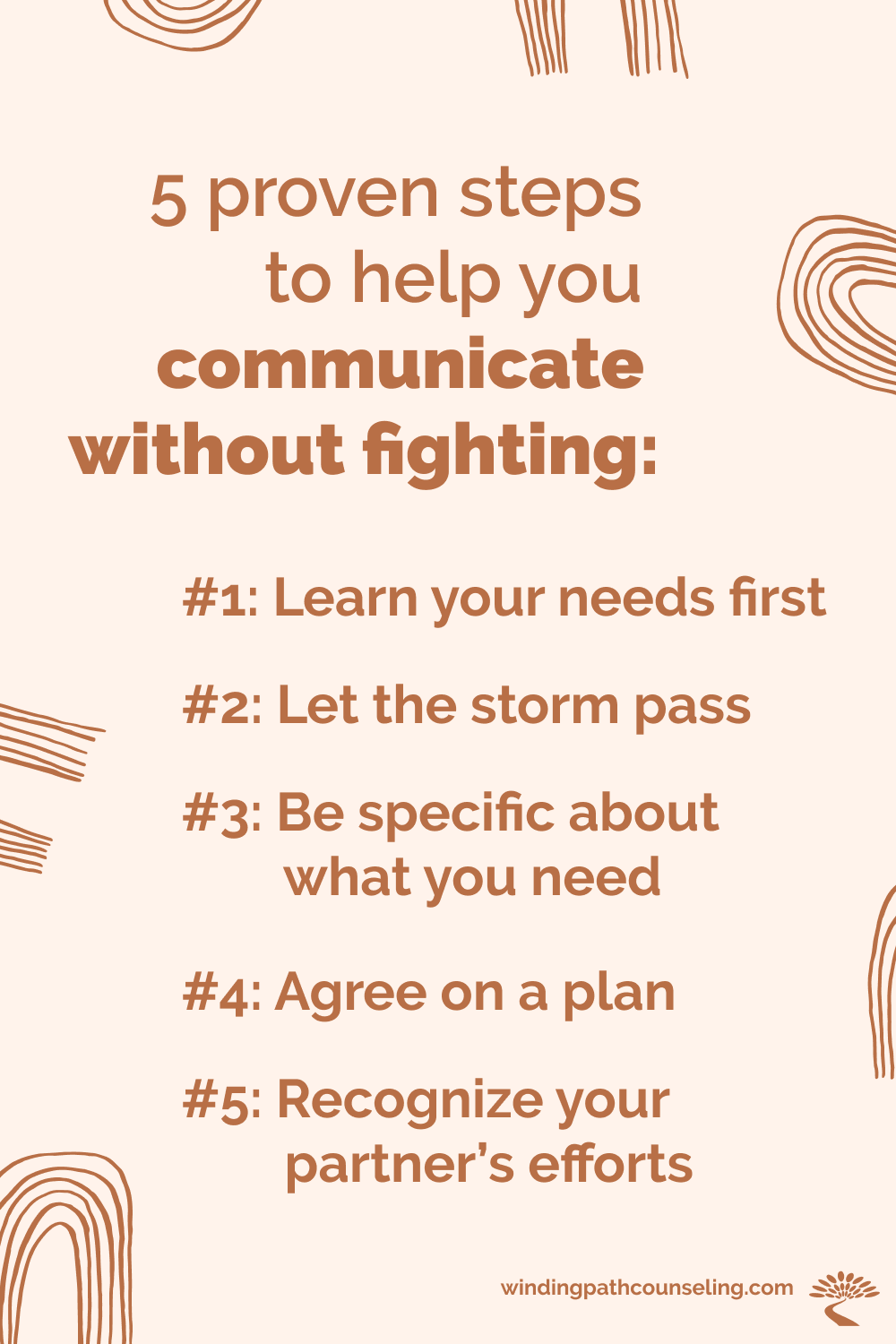
Have you ever found yourself in a heated argument with your partner, only to realize that they never seem to take your side? It can be frustrating and confusing, leaving you questioning the strength of your relationship. In this article, we will explore the possible reasons behind this behavior and provide some insights into how to navigate these situations. Understanding why your partner may not always take your side in arguments can help foster better communication and strengthen your relationship in the long run.

This image is property of www.primermagazine.com.
Understanding the Dynamics of Arguments in Relationships
Arguments are an inevitable part of any relationship, and understanding the dynamics of these disagreements is crucial for maintaining a healthy and harmonious partnership. In this article, we will explore the different communication styles that may arise during arguments, the role of empathy and understanding, as well as the power dynamics and control issues that can affect how your partner takes sides during an argument.
Communication Styles During Arguments
During arguments, communication styles can vary greatly between individuals. Some people may have a more assertive communication style, while others may be more passive or avoidant. It is important to recognize and understand these different styles to improve the overall communication within your relationship.
An assertive communication style involves clearly expressing your thoughts, feelings, and needs in a respectful manner. This style encourages open dialogue and promotes assertive problem-solving. On the other hand, passive communication involves avoiding confrontation and sacrificing your own needs in order to maintain peace. This communication style often leads to internal frustration and a lack of resolution. Finally, an avoidant communication style involves withdrawing from the argument altogether, either physically or emotionally, which can hinder effective communication and problem-solving.
Recognizing which communication style you and your partner tend to adopt during arguments can help you navigate these disagreements more effectively. By openly discussing and understanding each other’s communication styles, you can work towards finding a middle ground that allows for constructive and productive conversations.
The Role of Empathy and Understanding
Empathy and understanding are vital components of any successful relationship, particularly during arguments. When your partner fails to take your side in an argument, it may stem from a lack of empathy or a failure to truly understand your perspective.
Empathy requires actively listening to your partner, acknowledging their emotions, and putting yourself in their shoes. It allows you to better understand their experiences, feelings, and needs, fostering a strong connection and promoting effective problem-solving. By practicing empathy, both partners can feel heard, validated, and supported.
Understanding, on the other hand, involves grasping the rationale behind your partner’s perspective and respecting their point of view. It is essential to communicate openly and honestly to gain a deeper understanding of each other’s thoughts and feelings. When both partners actively strive to understand one another, it becomes easier to find common ground and work towards a mutually satisfying resolution.
Power Dynamics and Control Issues
Power dynamics and control issues can significantly impact how your partner takes your side during arguments. In some relationships, one partner may exert more control or influence over decision-making, leading to an imbalance of power. This power imbalance can make it difficult for the other partner to have their perspective acknowledged or their feelings validated.
Control issues can manifest in various ways, such as one partner consistently dominating the conversation, dismissing the other partner’s opinions, or using manipulative tactics to undermine their credibility. Additionally, if one partner constantly interrupts or talks over the other during arguments, it can create an atmosphere of hostility and invalidate the other person’s experiences.
It is crucial to address any power dynamics and control issues within your relationship in order to create a healthier and more supportive environment. By fostering equality, respect, and open communication, both partners can feel empowered to express themselves and have their voices heard.
Reasons Why Your Partner Might Not Take Your Side
There can be several reasons why your partner consistently fails to take your side during arguments. Understanding these reasons can shed light on their behaviors and help you address the underlying issues within your relationship.
Difference in Perspectives
One common reason why your partner may not take your side is that they have a different perspective on the matter at hand. Each individual has unique experiences, beliefs, and values, which can shape their point of view. It is important to recognize and respect these differences, even if they result in disagreements.
Instead of becoming frustrated or defensive, try to have open and non-judgmental discussions about your differing perspectives. Seek to understand the underlying reasons for your partner’s viewpoint, and communicate your own thoughts and feelings in a calm and respectful manner. By engaging in empathetic dialogue, you can bridge the gap between your perspectives and find a compromise or solution that satisfies both parties.
Fear of Confrontation
Another reason why your partner may not take your side is their fear of confrontation. Some individuals have an aversion to conflict and will go to great lengths to avoid it, even if it means suppressing their own thoughts and feelings. This fear of confrontation can lead to a lack of support during arguments, as your partner may prioritize maintaining harmony over expressing their own opinions.
To address this issue, it is important to create a safe and non-threatening environment for open communication. Assure your partner that their perspective is valued and that disagreements can be resolved in a respectful and constructive manner. Encourage them to express their thoughts and emotions honestly, and be receptive to their concerns. By fostering an environment that encourages open dialogue, you can help your partner overcome their fear of confrontation and actively engage in future arguments.
Desire for Harmony and Avoidance of Conflict
Similar to the fear of confrontation, a desire for harmony and conflict avoidance can also contribute to your partner’s failure to take your side. Some individuals prioritize maintaining peace within the relationship over expressing their own opinions or challenging their partner’s viewpoint. While this desire for harmony can be positive in some cases, it can also lead to a lack of support during arguments.
To address this issue, it is crucial to create a balance between maintaining harmony and effectively resolving conflicts. Encourage your partner to voice their thoughts and concerns, emphasizing that disagreements are a natural part of any relationship. Additionally, emphasize the importance of mutual respect and the value of both partners’ perspectives. By striving for a balance between harmony and conflict resolution, you can foster a healthier and more supportive dynamic within your relationship.
Lack of Empathy or Understanding
If your partner consistently fails to take your side, it may be indicative of a lack of empathy or understanding. Empathy is the ability to understand and share the feelings of another person, while understanding involves comprehending the rationale behind their perspective. Without empathy and understanding, it becomes difficult for your partner to fully support your side during arguments.
To address this issue, it is important to communicate your feelings and experiences openly and honestly. Express your need for empathy and understanding, and encourage your partner to actively listen and empathize with your point of view. Additionally, be open to their perspective and make an effort to understand their feelings and thoughts as well. By fostering empathy and understanding within your relationship, you can create a stronger bond and promote mutual support during arguments.
Insecurity or Low Self-esteem
Insecurity or low self-esteem can also play a significant role in why your partner may not take your side during arguments. Individuals with insecurities or low self-esteem may struggle to assert themselves or express their own opinions, fearing rejection or conflict. As a result, they may passively agree with their partner’s viewpoint, even if it contradicts their own thoughts or feelings.
To address this issue, it is important to create a supportive and non-judgmental environment that encourages your partner to assert themselves and express their opinions. Boost their self-esteem by acknowledging their strengths and accomplishments, and provide reassurance that their perspectives are valued. By helping your partner overcome their insecurities and low self-esteem, they can feel more empowered to take your side during arguments and contribute to the overall health of the relationship.
Past Traumas and Trust Issues
Past traumas and trust issues can significantly impact how your partner takes your side during arguments. If they have experienced betrayal or emotional wounds in previous relationships, they may struggle to fully trust and support you during disagreements. These past traumas can lead to a heightened sense of defensiveness or a reluctance to take your side.
To address this issue, it is important to cultivate a safe and secure environment within your relationship. Actively work on building trust and understanding, and acknowledge your partner’s past traumas and their impact on their current behavior. Encourage open and honest communication, and be patient and supportive as your partner navigates their trust issues. By fostering a sense of safety and trust, you can help your partner overcome their past traumas and actively support your side during arguments.

This image is property of www.primermagazine.com.
Signs That Your Partner Is Not Taking Your Side
It is essential to recognize the signs that your partner is not taking your side during arguments. By identifying these behaviors, you can address the issue and work towards a healthier and more supportive dynamic within your relationship.
Frequently Takes the Opposing View
If your partner consistently takes the opposing view during arguments, regardless of the topic, it may indicate that they are not fully supporting you. While healthy debates and differing opinions are normal, a pattern of consistently opposing your viewpoint without valid reasons can be a sign of a deeper issue.
Keep an eye out for this behavior and reflect on whether your partner’s arguments are driven by a genuine difference in opinions or if there is a pattern of not taking your side. If you notice this trend, it is crucial to address it with open and honest communication. Express your feelings and concerns, and encourage your partner to share their perspective as well. By discussing this pattern, you can work together to find a more balanced approach to arguments and ensure that both perspectives are valued.
Invalidation of Your Feelings and Experiences
One of the most significant signs that your partner is not taking your side is the invalidation of your feelings and experiences. If they consistently dismiss or minimize your emotions, belittle your experiences, or fail to acknowledge the impact of their words or actions, it can be deeply hurtful and damaging to your relationship.
It is essential to address this behavior and communicate the importance of validating each other’s feelings. Express how their invalidation affects you and emphasize the need for empathy and understanding within the relationship. Encourage your partner to actively listen and validate your emotions, while also committing to doing the same for them. By fostering an environment of emotional validation, both partners can feel supported and heard during arguments.
Dismissive or Defensive Responses
When your partner responds to your arguments with dismissive or defensive behavior, it can be a clear indication that they are not taking your side. Dismissive responses involve disregarding your point of view, minimizing the issue at hand, or outright ignoring your concerns. Defensive responses typically involve a heightened emotional reaction, deflecting blame, or refusing to acknowledge any responsibility.
If you consistently experience dismissive or defensive responses from your partner, it is important to address this behavior. During a calm and non-confrontational moment, express your feelings about their responses and discuss the impact it has on your relationship. Encourage open and honest communication, and strive to find healthier ways to navigate disagreements. By addressing dismissive or defensive responses, you can foster a more supportive and constructive environment for future arguments.
Lack of Support in Public Settings
Another sign that your partner is not taking your side is a lack of support in public settings. If they consistently downplay your achievements, publicly criticize or mock you, or fail to stand up for you when you are being unfairly attacked, it can be deeply hurtful and damaging to your self-esteem.
It is crucial to have a conversation with your partner about their lack of support in public settings. Share your feelings and concerns, emphasizing the importance of standing by each other’s side. Discuss potential underlying issues, such as insecurities or past traumas, and work together to address them. By fostering a sense of solidarity and support in both private and public settings, your relationship can become stronger and more resilient.
Fails to Acknowledge Your Point of View
One of the clearest signs that your partner is not taking your side is their failure to acknowledge your point of view. If they consistently disregard or ignore your perspective during arguments, it can create a sense of frustration, resentment, and disconnection.
Address this issue by engaging in open and non-confrontational discussions about your respective viewpoints. Encourage active listening and empathetic responses from both partners. Emphasize the importance of mutual respect and validation, and commit to creating an environment where both perspectives are acknowledged and valued. By actively working towards acknowledging each other’s points of view, you can foster a stronger and more supportive foundation for your relationship.

This image is property of cdn.powerofpositivity.com.
How to Address the Issue in Your Relationship
Addressing the issue of your partner not taking your side requires open and honest communication, empathy, and a willingness to work on the dynamics within your relationship. Here are some practical steps you can take to navigate this issue together.
Open and Honest Communication
Effective communication is the key to resolving any relationship issue, including your partner not taking your side in arguments. Schedule a dedicated time to discuss your concerns without distractions or interruptions. During this conversation, express your feelings and experiences, using “I” statements to avoid sounding accusatory. Encourage your partner to share their perspective as well, actively listening and validating their feelings. By engaging in open and honest communication, both partners can gain a deeper understanding of each other’s needs and work towards finding common ground.
Active Listening and Validation
Active listening is a crucial skill that promotes understanding and empathy within a relationship. It involves fully focusing on your partner’s words, non-verbal cues, and emotions, without interrupting or formulating a response in your mind. Practice active listening by paraphrasing your partner’s statements, reflecting back their feelings, and asking clarifying questions. This will show your partner that you value their perspective and are genuinely interested in understanding their point of view.
Validation is equally important during these discussions. Validate your partner’s emotions and experiences by acknowledging their feelings and expressing empathy. Avoid dismissing or minimizing their concerns, as this can further escalate the issue. Instead, strive to create an environment where both partners feel safe to express their emotions and have their experiences validated. By actively listening and validating each other, you can promote understanding and build a stronger connection.
Developing Empathy and Understanding
Empathy and understanding are essential components of a healthy and supportive relationship. Each partner should make an effort to develop these qualities and apply them during arguments. To develop empathy, practice putting yourself in your partner’s shoes, imagining their experiences, and considering their perspective. This will help you gain a deeper understanding of their thoughts and emotions.
Understanding, on the other hand, involves actively seeking to comprehend the rationale behind your partner’s viewpoint. Ask open-ended questions, encourage them to express their thoughts, and be genuinely interested in their responses. By fostering empathy and understanding within your relationship, both partners can feel heard and supported during arguments.
Working on Relationship Power Dynamics
Addressing power dynamics within your relationship is crucial for creating a healthy and balanced dynamic where both partners’ perspectives are valued. Reflect on the power dynamics within your relationship and identify any imbalances that may exist. Discuss these issues openly and honestly with your partner, emphasizing the importance of equality and mutual respect.
Work together to redefine and redistribute power within the relationship. Encourage both partners to actively participate in decision-making processes and ensure that both perspectives are considered. By establishing a more balanced power dynamic, you can create a more supportive and inclusive relationship where each partner’s viewpoint is acknowledged and valued.
Addressing Insecurities and Past Traumas
Insecurities and past traumas can greatly influence how your partner takes your side during arguments. If these issues are present in your relationship, it is important to address them with sensitivity and compassion. Encourage your partner to express their insecurities and fears, and provide reassurance and support.
Consider seeking professional help, such as couples counseling or therapy, to work through these underlying issues. A trained therapist can provide guidance and tools to help both partners address their insecurities and past traumas effectively. By actively addressing these issues, you can create a healthier and more supportive foundation for your relationship.

This image is property of uploads-ssl.webflow.com.
Seeking Professional Help and Guidance
If you find that the issues of your partner not taking your side persist despite your efforts, seeking professional help and guidance can be beneficial. A neutral third party, such as a couples counselor or therapist, can provide valuable insights and tools to address the underlying dynamics within your relationship.
Couples Counseling or Therapy
Couples counseling or therapy offers a safe and structured environment for both partners to explore their concerns, share their experiences, and gain a deeper understanding of each other’s perspectives. A trained professional can mediate conversations, provide effective communication techniques, and guide the couple towards a healthier and more supportive dynamic. Couples counseling can be particularly helpful in addressing power imbalances, trust issues, and communication problems.
Individual Therapy
Individual therapy can also be beneficial in addressing the issues surrounding your partner not taking your side during arguments. This type of therapy allows each partner to explore their personal traumas, insecurities, and communication styles. Individual therapy can help individuals gain insight into their behaviors, develop healthier coping mechanisms, and work on self-esteem and assertiveness. By addressing individual issues, both partners can contribute to a more supportive and understanding relationship.
Books and Resources on Relationship Dynamics
In addition to professional help, there are numerous books and resources available that can provide guidance and insights into relationship dynamics. These resources offer tips, strategies, and exercises to help couples navigate conflicts, improve communication, and build a stronger foundation.
Look for books by qualified relationship experts, such as John Gottman, Sue Johnson, or Esther Perel. These experts offer valuable perspectives on various relationship issues, including the dynamics of arguments and how couples can work towards a more supportive and fulfilling partnership. Additionally, online articles, podcasts, and workshops can provide further guidance and resources for strengthening relationship dynamics.

This image is property of www.northbrooklynmft.com.
Conclusion
In conclusion, the dynamics of arguments in relationships can be complex and multifaceted. Understanding your partner’s communication style, the role of empathy and understanding, as well as the underlying power dynamics and control issues, is crucial for fostering a healthy and supportive partnership. If your partner consistently fails to take your side during arguments, it may stem from various factors, such as differing perspectives, fear of confrontation, or a desire for harmony and conflict avoidance.
By recognizing the signs that your partner is not taking your side, you can address the issue and work towards building a healthier and more supportive dynamic. Open and honest communication, active listening and validation, developing empathy and understanding, and addressing power dynamics and past traumas are practical steps that can be taken to navigate this issue. Seeking professional help and guidance, such as couples counseling or therapy, can also provide valuable insights and tools for promoting a healthier and more supportive relationship.
Remember, building a strong and resilient relationship takes time, effort, and a commitment to growth and understanding. By actively working together, you can create a foundation of trust, communication, and support that can withstand the challenges of arguments and conflicts.






